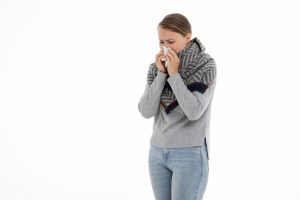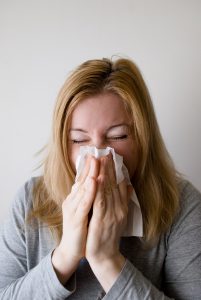Nasyam – It is one of the five purificatory/cleansing procedures mentioned under Panchakarma treatment – the essence of Ayurveda. This is meant for rejuvenation of the body. This is one of the important therapeutic procedures done before the actual Rasayana Therapy (Regenerative medicine). This Rasayana therapy is unique for Ayurveda and is practiced as one of the best and effective preventive medicine and regenerative medicine.
NASYAM
The nostrils are the entrance to the head and drugs administered through the nostrils are termed as Nasyam. there are two types of nasal medications depending upon the dosage of medicines used.
Marsha Nasyam – the medications used in this depends on the condition of the patient. The medicines can be in the form of oil, medicated ghee, decoction, medicated powder. The specific regime will have to be followed during this procedure the dosage of medicines can vary from 1ml to 5ml. This needs to be done under strict guidance and should be always monitored by a professional. Some of the examples of ailments where we use this procedure are chronic headaches, throat diseases, epilepsy, neurodegenerative conditions of brain sinusitis…
Peathimarsha Nasyam – Here the dosage of the medicine will be minimal and it can be two to four drops, this procedure can be done in pediatric patients and those in geriatric care. Normally this procedure will be advised after finishing Marsha Nasyam. This procedure is very helpful in patients with insomnia, psychological disturbances, hemiplegia, facial paralysis, etc.
Other divisions of Nasyam according to its Ayurvedic actions:
Virechana Nasyam – Here the choice of drugs used for nasal administration will be having a cleansing property. They are mainly for treating conditions like sinusitis.
Bruhmana Nasyam – Here the choice of drugs will be mainly regenerative and normally will be followed after Virechana Nasyam.

Another division depending upon the condition of the patient.
Shamana Nasyam – Here the choice of drugs will be different and the dosage will be as per Marsha Nasyam or Prathimarsha Nasyam. Symptomatic relief will be achieved immediately with this procedure.
Procedure
As a preparatory procedure the patient’s shoulders, neck, and face are massaged with medicated oils. This is followed by sweating (with the help of a towel dipped in hot herbal juice which is used to work up a sweat). The patient’s bowel and bladder must be emptied before undergoing this procedure.
The patient must be made to lie on his back on the table with head lowered a bit by placing a pillow under the neck. The drug can then be safely administered as drops into the nostrils and should be drawn in by the patient, soon after this the attendants massage the patient’s nose, cheeks, neck, shoulders, palms, and feet gently. After some time, the patient feels the mucus oozing down from the nasal region to the throat, this can be spat out. A warm water gargle will be advised after this procedure.
Who are ineligible for this treatment?
Those having fever or infectious diseases should not undertake this treatment. Ayurvedic Treatment in Kochi is also not recommended during menstruation or pregnancy, during or immediately after an asthma attack and heart attack.
Benefits
Improves memory and vision, cures insomnia, has a positive effect on nasal allergies, treats damaged nasal septum, nasal polyp, helps with sinusitis, and helps with migraine.

Good for cervical spondylitis, hemiplegia, and paraplegia, odor loss, and taste. It helps with acne and improves the condition of the sensory organs. It clears congestion of the sinuses and removes toxins from the head and neck.
-
Helps relieve voice hoarseness and nose and throat pain. It provides relief from headaches and migraines.
-
Improves rhinitis or runny nose and clears blocked nasal passage.
-
Relieves mental and emotional stress and anxiety, strengthens hair and prevents gray hair from falling and dandruff.
-
Prevents goiter, tonsillitis, and motor disorders.
-
Stimulates the brain and improves concentration.
-
Improves skin tone and slows down.
-
Diseases of mouth, nose, ears, eyes, and head.
-
Diseases of the eyelid, dry nose.
-
Facial paralysis.
-
Successfully used in hysteria.
-
Migraines.
-
Multiple sclerosis.
-
Parkinson.
-
Seed disorders.
-
Sinusitis.
-
Tonsillitis.
